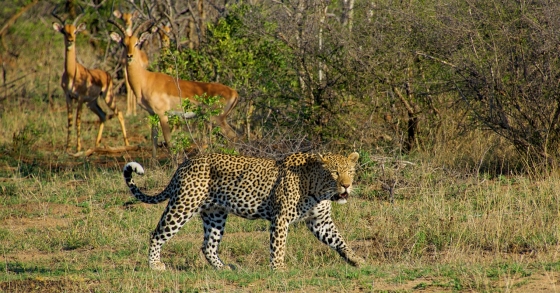Johannesburg Weather and Climate: A Comprehensive Guide
You will always experience pleasant temperatures in Johannesburg. It has a subtropical highland climate and winter is sunny and mild. Summers are warm and get pretty wet. During summer it usually does not get any warmer than 30°C and in winter temperatures are most days higher than 16°C. During the night it can cool off quite a bit.
Average maximum day and minimum night temperature
In Johannesburg, seasonal changes bring about a moderate variation in temperatures. On average, daytime temperatures range from a comfortable 27°C in January to a pleasant 20°C in July.
Nighttime temperatures can drop, with average lows reaching 4°C in July.Check out our detailed temperature page for more information.
Temperature ranges by month
Precipitation and rainy days
On average, Johannesburg receives a reasonable amount of rainfall, with an annual precipitation of 779 mm. The seasons in Johannesburg, bring significant changes in precipitation. The wettest month, December, receives high rainfall, with an average of 140 mm of precipitation. This rainfall is distributed across 14 rainy days.
In contrast, the driest month, July, experiences much less rainfall, totaling 3.6 mm over a single rainy day. These distinct seasonal differences provide diverse experiences throughout the year. For more details, please visit our Johannesburg Precipitation page.The mean monthly precipitation over the year, including rain, hail and snow
Sunshine over the year
Johannesburg enjoys sunny spells year-round. July sees up to 9.5 hours of daily sunshine, perfect for a sunny trip. February, the least sunny month, still offers a generous 7.5 hours of sun despite this cloudier time of the year.
Visit our detailed sunshine hours page for more information.
Monthly hours of sunshine
Daily hours of sunshine
Average humidity
The relative humidity is moderate throughout the year in Johannesburg.
The city experiences its highest humidity in February, reaching 70%. In August, the humidity drops to its lowest level at 46%. What does this mean? Read our detailed page on humidity levels for further details.
Relative humidity over the year
Forecast for Johannesburg



Select a Month of Interest
Check the conditions for any month of the year.
The best time of year to visit Johannesburg in South Africa
During the months of March, April, May, August and September you are most likely to experience good weather with pleasant average temperatures that fall between 20°C and 26°C.Other facts from our historical weather data:
Yes, the months of May, June, July and August are very dry.
January has an average maximum temperature of 27°C and is the warmest month of the year.
The coldest month is July with an average maximum temperature of 20°C.
December tops the wettest month list with 140 mm of rainfall.
July is the driest month with 4 mm of precipitation.
August is the sunniest month with an average of 284 hours of sunshine.
No idea where to travel to this year? We have a tool that recommends destinations based on your ideal conditions. Find out where to go with our weather planner.



